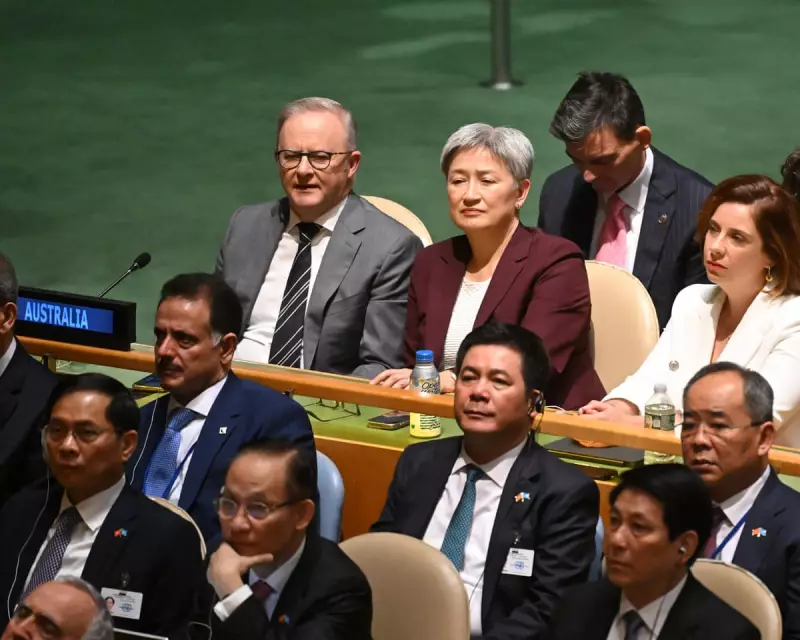
In a dramatic and fiery speech that sent ripples through the United Nations General Assembly, Donald Trump delivered a stinging rebuke to a key US ally. The former and potential future US president took aim at Australia's recent move to formally recognise a Palestinian state, labelling the decision a "dangerous and foolish" error that rewards acts of terror.
A Theatrical Condemnation on the World Stage
Trump, known for his theatrical and unfiltered rhetorical style, used his high-profile platform at the UN to isolate the Australian government's policy. He framed the recognition as a betrayal of Israel and a direct insult to the United States' longstanding position in the region.
"When so-called allies like Australia decide to reward those who commit unspeakable violence, they spit in the face of every nation that seeks true peace," Trump declared to a captivated audience. His remarks underscored a deep fracture in diplomatic consensus, highlighting his continued preference for a staunchly pro-Israel stance.
Australia's Decision and the Global Reaction
The Australian government, led by Prime Minister Anthony Albanese, announced its recognition earlier this week, arguing it is a necessary step towards a two-state solution and lasting peace. The move aligns Australia with over 130 other UN member states that have already recognised Palestine.
However, Trump vehemently disputed this logic. He argued that such recognition undermines negotiation efforts and emboldens extremist elements. "You do not make peace by giving everything away for nothing. This is not a peace policy; it is a policy of surrender," he thundered from the podium.
Implications for Future Alliances
This public dressing-down signals potential turbulence in the US-Australia relationship should Trump return to the White House. His speech served as a stark warning to other allies considering similar diplomatic shifts, suggesting that his administration would not hesitate to call out and potentially penalise actions it perceives as hostile to US interests.
The confrontation at the UN sets the stage for a foreign policy approach defined by loyalty tests and a hardline support for Israel, marking a clear departure from more nuanced international diplomacy.






